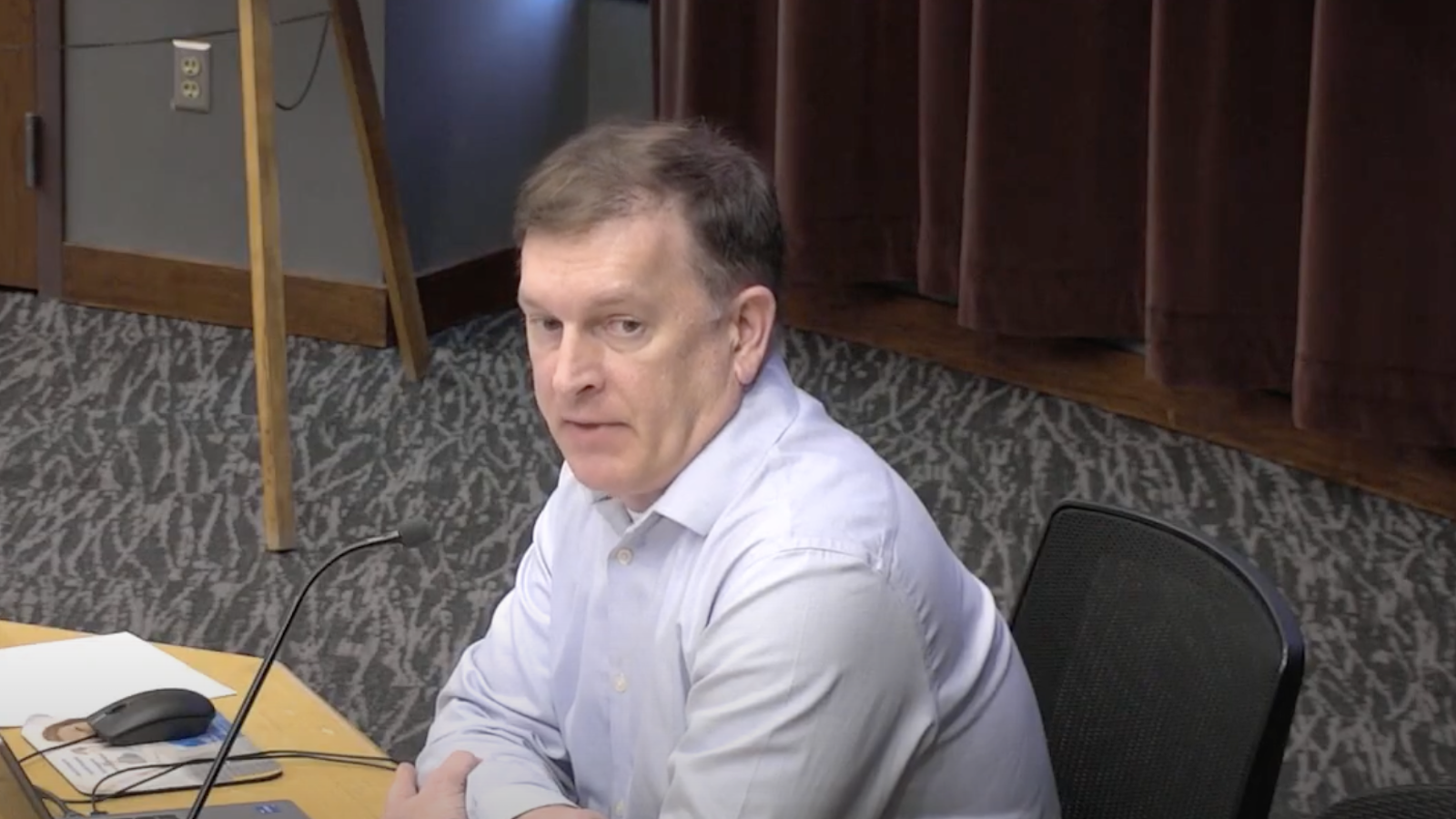Scott Larson | https://www.youtube.com/watch?v=MXQW8rZnKGk
Scott Larson | https://www.youtube.com/watch?v=MXQW8rZnKGk
The Coralville City Council discussed the city’s infrastructure needs and contrasted them with its financial limitations, leading to some difficult choices being made during the council's April 11 meeting.
The council has sought bids for a large street improvement project on Fifth Street, running from 12th to 20th Avenue, but many of the quotes came in far above what their engineer’s estimates were, as well as what the city was prepared to pay. Instead, the council voted to reject all previous bids it had received for the project, and decided to inform potential bidders that the council will review and simplify options on the project and send it back out for rebid through the Iowa Department of Transportation in the fall, City Engineer Scott Larson said.
"At the March 28 meeting, that the low bid was substantially over the engineer's estimate, 33.1%," he explained. "We've done a pretty deep dive into the bids received and really noticed that there are quite a few unit prices that were in some cases more than double what we would typically see. And even given some of the challenges that the Fifth Street Project has, we just felt like the unit prices were just too high on too many items."
Larson also updated the council on the staff's decision and plans for moving forward. While reviewing bids, he said, the staff noticed that there were several line items in the bids with unit prices far above what they should see, even double their estimates. Because of this, some items that had originally been set for bid were being taken out of the infrastructure projects and dealt with directly by the city. Then, the remaining items will be included for bid, he said.
The city could remove some of the water main portions from the scope of the project, as that would simplify it, condense some phases of construction, and make it more appealing for contractors, Larson said. While the new plan will change the timeline of the project, pushing it back as much as a year, it might shorten the actual time spent in construction to within two seasons rather than two construction seasons. There will be some ongoing utility work in that corridor, which has already begun under the city, but property owners will be able to get in and out, Larson added.






 Alerts Sign-up
Alerts Sign-up